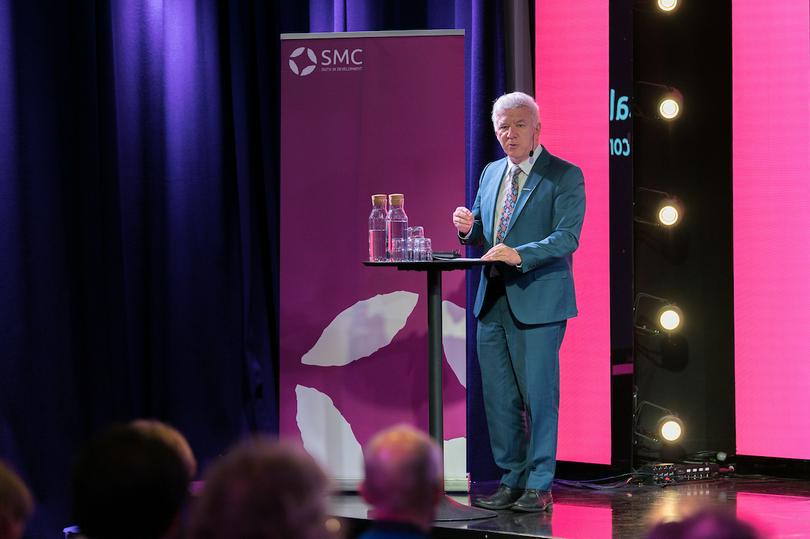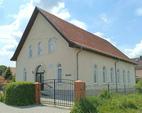To mark the centenary of the 1925 Life and Work Conference in Stockholm, the Church Councils of Sweden hosted the ecumenical Week in the city from August 18 to 25. Rudelmar Bueno de Faria, general secretary of the ACT alliance, delivered a speech at the session themed "Call to Transformation—a Conversation on Ecumenical Diakonia."
In his speech, Faria emphasized that the ecumenical movement must unite to address humanity's challenges effectively, guided by faith.
"The big challenges are the instrumentalization of religion and polarization," he said, describing it as either the politicization of religion or the religionization of politics. Against this backdrop, he noted a values crisis marked by the erosion of inclusion, respect, dignity, and justice, and a crisis of multilateralism as autocratic governments seek to impose their vision of the world.
The session centered on the 2022 document "Call to Transformation, Ecumenical Diakonia," jointly published by the World Council of Churches (WCC) and the ACT Alliance.
Over time, diaconal work has taken different forms—sometimes shaped by professionalization and the adoption of secular principles like human rights. This, however, created tensions over how diaconia should be practiced and who should lead it: churches versus specialized ministries, or international versus local organizations.
To address these issues, a consultation in Malawi in 2014 brought together churches and the ACT Alliance to clarify principles for collaboration, while acknowledging the diversity of diaconal expressions—from institutional diakonia to prophetic diakonia, which is the more political one.
The document grew out of these discussions. It traces the historical development of diakonia in the ecumenical movement, analyzes rapidly changing global challenges, and considers diverse theological contexts. Importantly, it is more than a guide to collaboration; it is a call to turn ideas into actionable efforts.
The ACT Alliance, short for Action by Churches Together Alliance, was established in 2010 through the merger of ACT International and ACT Development. As a global network of churches and other Christian organizations, its core goal is to streamline churches' humanitarian and development efforts by uniting churches and faith-based organizations worldwide.
Today, Faria believes cooperation between churches and organizations has made significant progress. The ACT Alliance operates through national forums. When multiple members work in the same country, collaboration is mandatory as part of the membership agreement.
"We have good examples in many countries," Faria said. "In Ethiopia, for instance, churches and specialized ministries join forces to strategize, pool resources, and implement work as one community—that is the vision of the ACT Alliance, to move further toward this cooperative approach."
He added, "Ukraine is another strong example, international and national organizations collaborate to deliver assistance as effectively as possible. Even in Gaza, despite the complex situation, we operate alongside local members who are struggling with issues like famine and hunger."
Another critical issue for faith-based organizations is balancing professional language with theological identity. The ACT Alliance has historically preferred technical language over the term "diakonia," but Faria said this has changed.
"Since 2017, we have strongly reaffirmed our identity as a faith-based organization in the ecumenical movement," he said. "We now use theology as our motivation and integrate it into our programs." To maintain this balance, the ACT Alliance established a religion reference group to ground its work in theology.
Faria clarified that the ACT Alliance complements the ecumenical movement—it does not focus on theological debates, but on diakonia, which centers on human dignity.
"When we help refugees, internally displaced people, or those affected by disasters, we never ask about their religion, region, or sexual orientation," he said. "We help them because they are created in the image of God—that is the core of our diaconal identity."
Balancing professional standards with theological identity also means maintaining a prophetic voice in public spaces.
"When people talk about diakonia, they sometimes only think of charity or philanthropic work," Faria said. "But that is not all—diakonia is prophetic, which is political, and the document shows that. We need to strive for a fair world that includes everyone, not one defined solely by economics."
Faria sees this dual focus as one of the ACT Alliance's greatest strengths. "Today, within the humanitarian and development sectors, the ACT Alliance is one of the most influential faith-based organizations in the multilateral system," he noted. "We hold positions that other faith-based or civil society organizations do not—for example, at the UN and the World Economic Forum (WEF), where we are part of 'Faith in Action,' one of the Global Future Council of the WEF."
He emphasized that combining compassionate work with a prophetic commitment to justice is essential. "When I worked in Brazil, I focused less on compassionate work because I worried it might be paternalistic and fail to address root causes—the prophetic dimension," Faria shared. "But seeing atrocities and how policies and people mistreat others, I realized we are normalizing violence, hunger, and indifference. This lack of compassion is a lack of humanity, so we need to bring compassion back to our work."
Currently, the ACT Alliance focuses on climate justice, gender justice, peace and human security, and addressing converging fundamentalisms. "In today's geopolitical context, with aid becoming polarized and the legacy of colonization persisting in existing systems, we need to cooperate more deliberately—and we are," Faria said.
During Ecumenical Week, he met with WCC and LWF leaders and regional bishops and planned a global conference on diakonia next year, likely in Geneva, to enhance collaboration. "This will be the first time we expand discussions to include specialized ministries, recognizing that all of us need to adjust our approaches," he added.
His biggest takeaway from the Stockholm event was a shared realization, the world is in a critical moment, and "business as usual" is no longer an option. To meet global challenges, we need to move forward in a different way.
China's Amity Foundation, a member of ACT Alliance and part of its governing board, provides national diaconal services and supports international humanitarian projects and advocacy.










